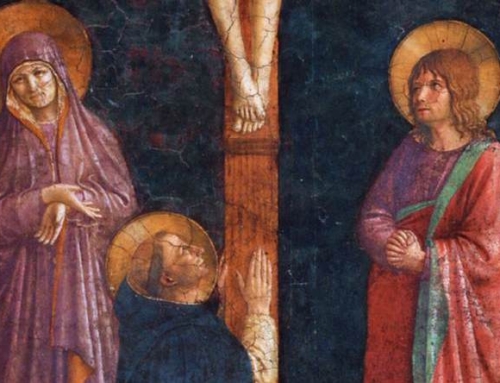2023 Summer Reading Recommendations:
A Severe Mercy by Sheldon Vanauken
There is a lot of talk this month about love. June is dedicated to the Sacred Heart and during this month we are called to reflect on the profundity of Christ’s loving heart. But there are those who celebrate a different sense of love this month, a limited sense that proclaims a flat tautology: Love is love.
But this is not exactly accurate; the things we call “loves” are not all equal. Certain loves demand greater sacrifice and offer greater fruits, while other loves make an idol of attraction and affection and lead to disappointment. The greatest love of all is that which participates in the divine love of Christ. The idols we fashion out of merely human love hold us back from giving ourselves completely to God’s love. They must be set aside if we are to love him and be loved by him (Exod 20:4-6).
God’s love confronts us with many questions: What sacrifices are we willing to make for love? What are the limitations of merely human love? Are we willing to surrender to the demands of divine love? Sheldon “Van” Vanauken explores these questions in his memoir, A Severe Mercy, as he reflects on his life with his wife Jean (“Davy”), his grief after her untimely death, and how their relationship led to his acceptance of God’s love.
After meeting in college, Van and Davy embarked upon a journey of love that led them around the world and into the depths of self-understanding. Theirs was the love that is usually found only in daydreams and rom-coms. Realizing the precious nature of the love they had found, they resolved to protect it. They built a fortress for their love, protected by rules and strengthened by their devotion to the idol of their love.
“We raised the Shining Barrier against creeping separateness, which was, in the last analysis, self … we would be us-centered, not self-centered. Against creeping separateness we would oppose the great principle of sharing. We saw self as the ultimate danger to love, which it is … we turned away from it, turned away because we loved our love. And we were determined that it should endure” (A Severe Mercy, 35).
Behind this Shining Barrier, their love was kept safe and they lived in an idolatry of “high paganism . . . adoring the mysteries of beauty and love” (A Severe Mercy, 31).
But their plans did not account for God, who had been with them from the beginning. He broke the walls of their fortress and threatened their idolatry with his all-consuming love. After encountering Christ, it became clear that the pagan love-idol they had forged and protected was incompatible with the demands of God’s love. Van realized this, but was unwilling to give it up and surrender to God even when he knew Davy had done so.
“Intellectually I was wholly committed to [Christianity’s] truth. And yet I was holding something back. But for Davy it really was ‘overwhelmingly first’—nothing held back. … We should, somehow, be able to have the Shining Barrier intact and follow the King of Glory. I didn’t want to be a saint” (A Severe Mercy, 136).
His memoir unpacks this struggle, wrestling with the jealousy of God’s love and the severe mercy of his providence.
A Severe Mercy recounts a love story that reveals the heights to which merely human love can ascend, but also shows why this type of love cannot satisfy. Vanauken paints clearly and with a rich palate the movements of grace in his life and the intensity of his struggle with God’s love. Speckled lavishly with poems, letters to friends, and moving descriptions of people, places, and experiences, Vanauken shares his life in a way that shines a light on love and leaves readers longing for a deeper and more perfect love that can only be found in God. I recommend this book to anyone who wants to know what love is and what it can truly become when it rests under the mercy of God.
✠
Photo by Elizabeth Tsung







